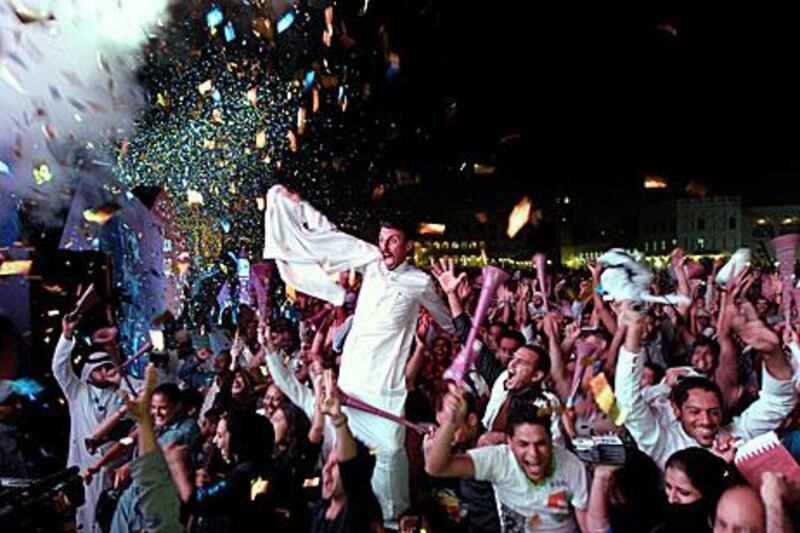In 2011 Qatar rose to become a major diplomatic player in the region and beyond. It harnessed its wealth and media resources to encourage Arab Spring uprisings, usually siding with the protest movements against authoritarian regimes.
In Libya, Doha took to the forefront in international efforts to bring down Muammar Qaddafi.
Qatar helped galvanise crucial Arab support for the Nato-led air operation against Qaddafi's regime and provided military muscle.
The emirate supplied weapons, money, fighter bombers, military advisers and key communications.
Qatar’s military’s chief-of-staff, Major-General Hamad bin Ali Al Atiya, said in October that hundreds of Qatari soldiers were in every region of Libya training the rebels and supplying communications. Closer to home, Qatar supported the deployment of a GCC military force to help quell unrest in Bahrain.
Later in the year, Qatar’s emir, Sheikh Hamad bin Khalifa Al Thani, led efforts by the Arab League to force the Syrian regime to end its violent crackdown on protesters.
“It was very clear for Qatar, when we saw bloodshed … we could not sit back and not say something, especially when excessive force has been used,” said Sheikh Hamad bin Jassim bin Jabr Al Thani, the premier.
In Tunisia, Egypt, Libya, Syria and Yemen, the satellite broadcaster Al Jazeera provided exhaustive coverage of the uprisings in Arabic and English, which many believe contributed to the slide from power of Zine El Abidine ben Ali, Hosni Mubarak and Qaddafi. Qatar’s role in helping topple Qaddafi will have ramifications into 2012.
During the uprising, Doha directed much of its funding to Islamist rebel factions rather than through the interim National Transitional Council, which means it will be a key player in the battle for influence in the post-Qaddafi Libya.
Domestically, the excitement generated by Qatar’s winning of the right to host the football World Cup in 2022 has added an impetus to development projects that will stretch into the new year.
As the world’s largest exporter of liquefied natural gas, Qatar passed the year with barely a hint of the economic downturn affecting many other regions of the world.
The government even managed to increase public sector salaries by 60 per cent and set 2013 as the date for the advisory council election.
jlessware@thenational.ae





